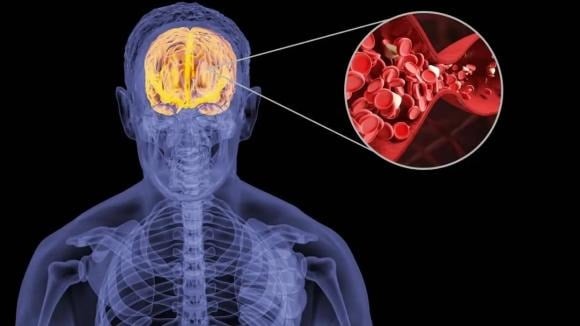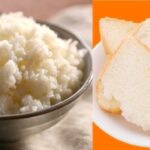Over the years of my clinical practice, I’ve witnessed countless patients suffering from the devastating consequences of stroke. This condition is not only common in middle-aged and elderly individuals, but it’s also one of the leading causes of death and disability worldwide.
Many people believe that a diet high in fatty meats and clogged arteries is the primary cause of stroke. However, recent research and clinical evidence have unveiled a startling truth – fat may not be the root culprit. Instead, certain familiar foods and daily eating habits are the “ticking time bombs” silently increasing the risk of stroke.
Right away, I will share with you some less obvious but highly impactful food and behavior choices that affect brain health. This will help you take a proactive approach to building a healthier daily diet.
Refined Carbohydrates – The Hidden Culprit Damaging Your Blood Vessels
White rice, noodles, steamed buns, and pastries are common in daily meals. Many believe these foods are easy to digest, light, and filling. However, the truth is that these refined foods have been stripped of their protective layer – fiber. When consumed, they quickly break down into glucose, causing a sudden spike in blood sugar levels. This constant fluctuation stresses the body, leading to continuous insulin secretion and putting the blood vessel lining in a constant state of “stress.” Over time, this reduces the elasticity of the blood vessels and facilitates the formation of plaques. When these plaques rupture, the risk of stroke is significantly increased.

So, don’t be too quick to assume that “light” foods like white rice or noodles are safe. In reality, these refined white foods are the hidden dangers in your daily diet.
Reheated Fried Foods – The Silent “Chili Oil” in Your Blood Vessels
Not many know that when vegetable oils are heated repeatedly – whether peanut, soybean, or canola oil – they produce harmful compounds like aldehydes and oxidized lipids. These substances can directly damage blood vessel walls and cause chronic inflammation, similar to someone secretly pouring chili oil into your blood vessels every day.

Over time, this damage weakens the blood vessels, making them susceptible to atherosclerosis. Research also indicates that the oxidized compounds in reheated oil promote LDL oxidation, a key factor in atherosclerosis and stroke.
Don’t assume that frying vegetarian food is healthier. When oil is overheated or reused, even healthy foods can turn into “poison” for your blood vessels.
Processed Meats: The Silent Triple Threat to Your Blood Vessels
Many consume processed meats daily, such as sausages, ham, and bacon, unaware of the hidden dangers within: nitrites, preservatives, and saturated fat. This trio is akin to a “combined killer” that induces blood vessel inflammation, disrupts fat metabolism, and makes the blood stickier. Over time, blood vessels, especially the smaller ones in the brain, narrow, harden, and become prone to blockage. Even a minor injury, if left untreated, can lead to severe consequences like a stroke.
Juice Instead of Water – The Sweet Deception Harming Your Health
The seemingly healthy habit of replacing water with fruit juice is a dangerous “sweet trap.” When fruits are juiced, the fiber is removed, causing a rapid absorption of fructose compared to eating the whole fruit. This means a glass of orange juice can contain the sugar of three to four oranges. Fructose bypasses normal glucose metabolism and goes straight to the liver, where it’s turned into fat. Over time, this leads to non-alcoholic fatty liver disease and exacerbates dyslipidemia, contributing to metabolic syndrome, a foundation for stroke.
Stroke Is a Consequence of Lifestyle, Not a Sudden Event
Remember, a stroke doesn’t occur after a single fatty meal or a night of sleep deprivation. It’s the result of long-term accumulation, stemming from daily dietary and lifestyle choices. The warning signs are always there – it’s just a matter of whether we pay attention and make the necessary changes.
As a doctor, I’ve seen patients live with severe post-stroke disabilities. This convinces me that early vascular care is the most effective way to protect brain health.





































